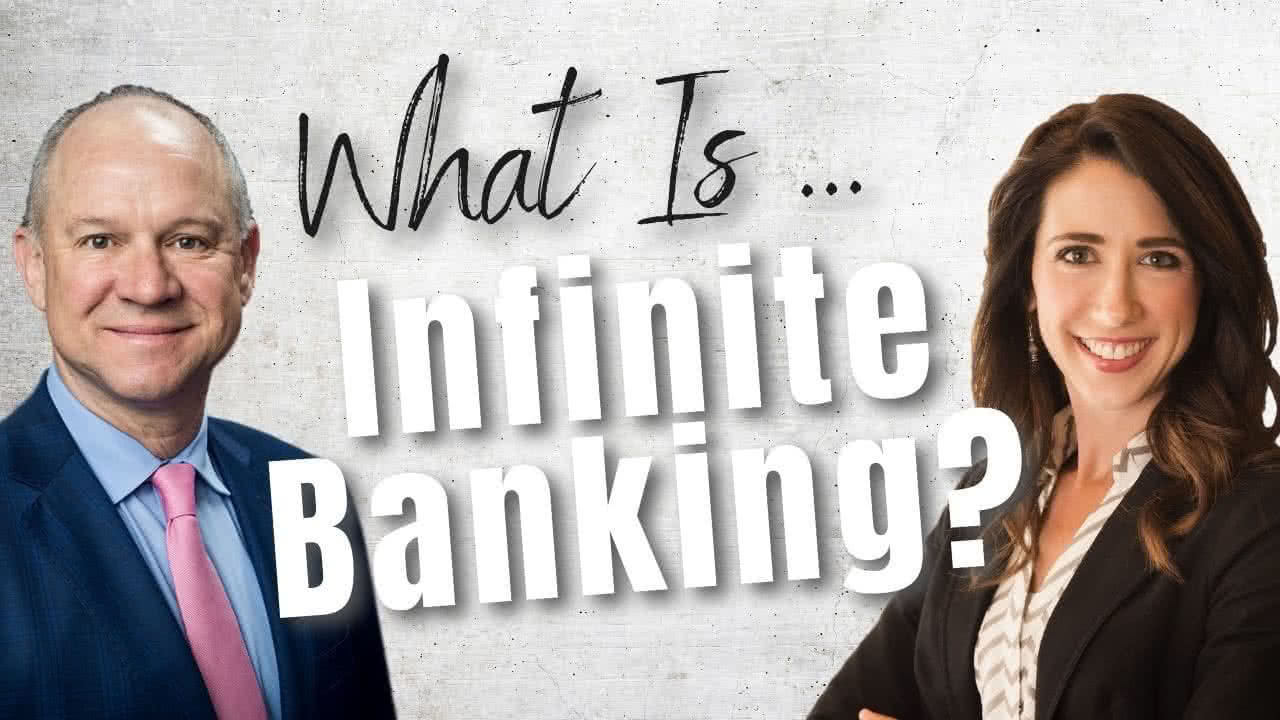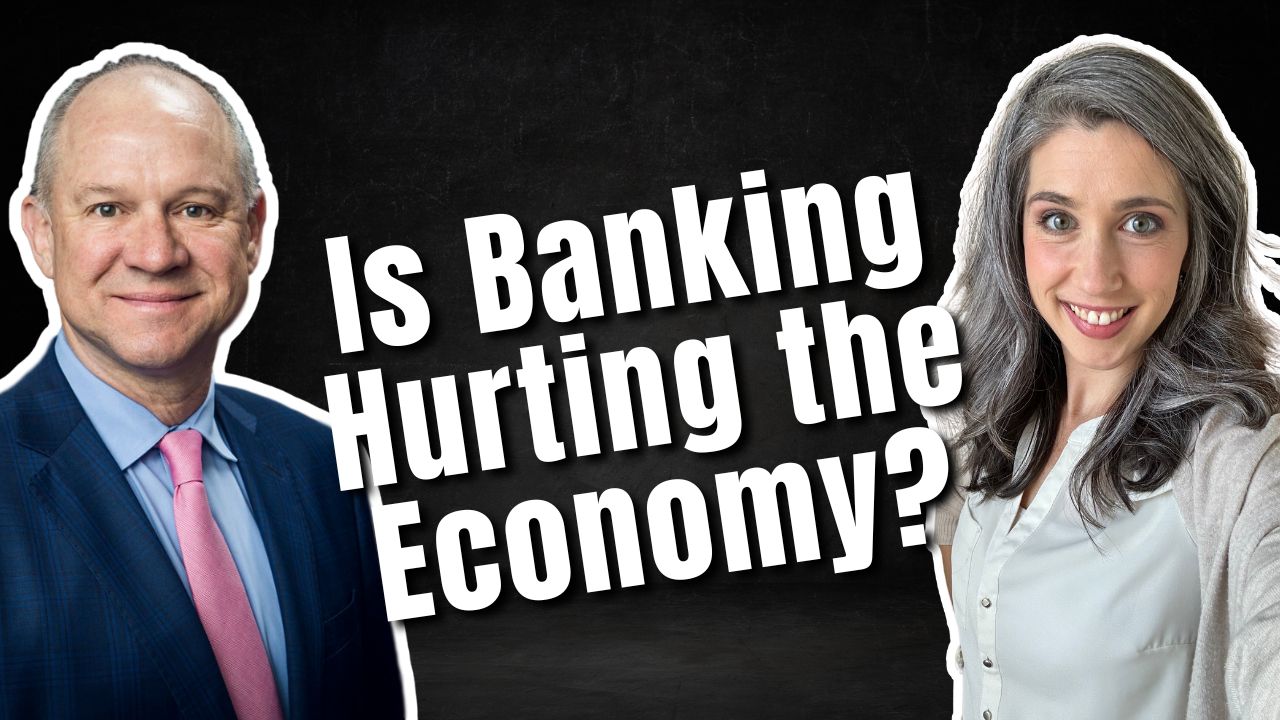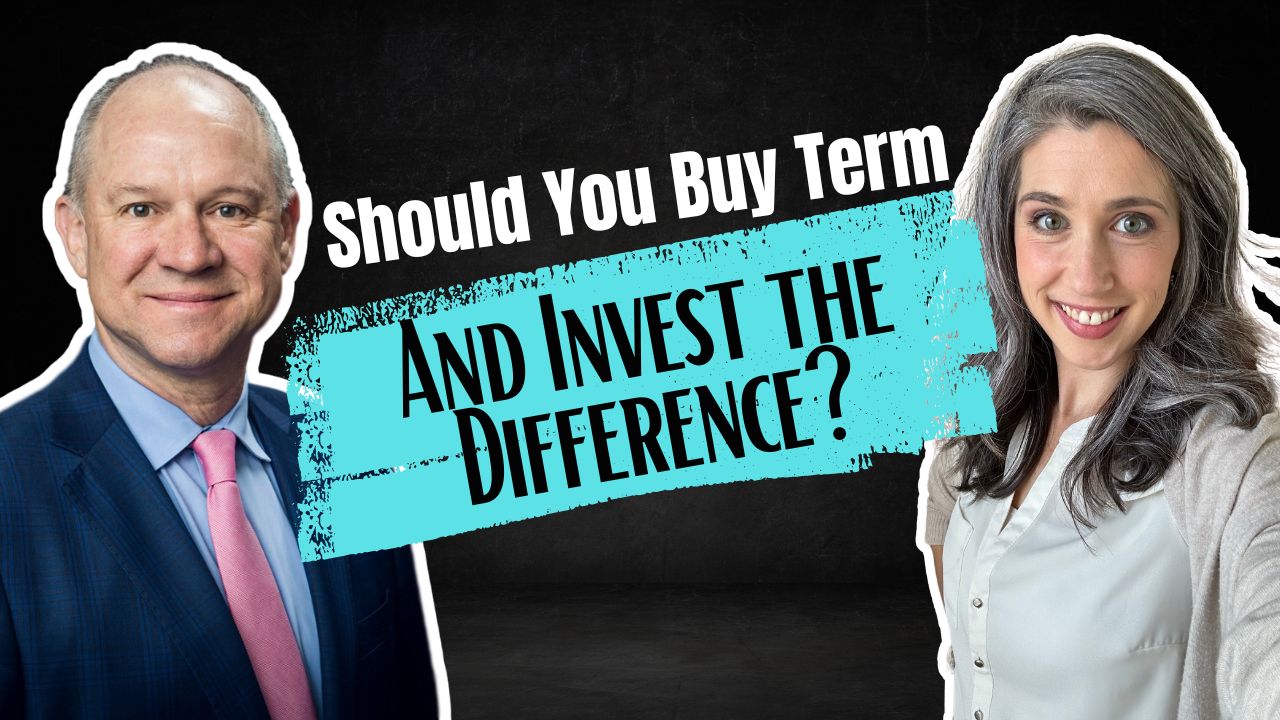
What is Infinite Banking, Part 1
What Is Infinite Banking?
Have you heard about Nelson Nash, Infinite Banking, Becoming Your Own Banker, bank on yourself, or be your own banker and want to learn more? Maybe you’re already using Infinite Banking but would like to explain it better to your spouse, parents, children, business partner, or friends.
Today, we’re starting a new series on Infinite Banking Basics. We’ll be unpacking all of your “what” questions about Infinite Banking. In this conversation, we answer:
- What Is Infinite Banking?
- What Is Whole Life Insurance?
- What Is the Purpose of Life Insurance?
So if you want to see how Infinite Banking gives you control and options, why you don’t want only term life insurance, and why insurance is still for you, even in your latest decades… tune in now!
Podcast: Play in new window | Download (Duration: 49:31 — 56.7MB)
Subscribe: Apple Podcasts | Spotify | Android | Pandora | RSS | More
Table of contents
Infinite Banking Explained
The infinite banking concept is complicated, and something that most people learn over time. Even seasoned users of infinite banking have “ah-ha” moments as they grow in their understanding. The purpose of this conversation is to accelerate some of those “ah-ha” moments so that you can have the tools to get started.
[5:44] “Let’s be honest. Do you really, really, really need to know how something works? Or do you want to know what it does for you, and what it allows you to do in your own life? So we’re going to play that balance delicately today.”
What is Infinite Banking?
The simplest answer to this question is that infinite banking is a strategy of using specially designed whole life insurance. However this may call up many other questions, such as what is whole life insurance, and what does it mean to be specially designed?
To take the topic in a broader direction, let’s say that infinite banking is about creating financing opportunities. We all finance things: mortgage payments, car payments, bills, groceries, credit cards–-all of these are financing scenarios. An infinite banking system creates an additional, efficient pool of money for financing your life.
[8:22] “Nelson [Nash] said your need for finance is greater than your need for saving.”
The beauty of infinite banking is that you get to do both–save money, and finance purchases. This is because you’re creating a financial system for yourself that mimics the banks.
[10:58] “What infinite banking puts in your lap, or in your hands, is this ability to model the bank and act like the bank and control capital. And that’s at the core of why it allows you to finance well and save well, because you’re in a position of controlling capital like the bank does.”
The preferred vehicle for infinite banking is whole life insurance, which helps you create a pool of money that is safe and growth-oriented.
What is Whole Life Insurance?
Life insurance is insurance that you pay a premium for, and if you die while the policy is active, your family receives a payout of money. The simplest definition of whole life insurance is life insurance that lasts for your whole life and provides a cash value account.
The reason it lasts your whole life, as opposed to term insurance, is because of the structured agreement. You agree to pay a certain amount of premium over your lifetime, in exchange for coverage over your lifetime.
[14:54] “Whole life… takes the insurance cost and it spreads it out through your entire life.”
This model guarantees that you will have coverage in place if you die, so long as you hold up your side of the deal: paying premiums. Fortunately, these premiums don’t just vanish. You actually get to access your cash, through the policy’s cash value component.
Cash value works like home equity. The more premiums you pay, the more access you have to your cash value while you’re living. Mutual insurance companies, which are owned by policyholders instead of stockholders, can even pay dividends to your account.
Term Insurance vs. Whole Life Insurance
You may be wondering why whole life insurance is critical to the infinite banking strategy, over regular term insurance. One of the best ways to explain the difference is with an analogy.
When you’re at the grocery store, and you see two similar items, you want to buy the cheaper product, right? You may even wonder why the higher-priced item exists at all, especially if the price difference is significant.
Yet think of all the things you may not know that contribute to that price difference. Where was the product made, with what materials, and how long will it last? While the less expensive item may provide a bargain at the moment, what happens if it wears out quickly? What if it doesn’t meet your expectations?
This describes the key difference between whole life insurance and term insurance. Whole life insurance is a more expensive insurance option than term insurance when you look at the “face value.” However, while whole life insurance is permanent, and provides cash value, term insurance is temporary and has no cash account. If you die after your term insurance expires, there is no monetary insurance benefit to all the money you’ve put into the policy.
While term insurance may seem like the better option because it’s cheaper, it doesn’t have the same benefits as whole life insurance and may end up costing more in the long run. Term insurance may even get more expensive once you reach an age where you really need the insurance. (However, we do advocate for having term insurance as a supplement to whole life insurance.)
Bottom line, whole life insurance is an asset that guarantees you access to cash and a death benefit, while term insurance has no such guarantees.
What is the Purpose of Life Insurance?
The purpose of life insurance is, during your earning years, to protect your income. The death benefit provided by a life insurance policy replaces your income for those who depend on you for income. However, this does not mean it is only beneficial to you during your earning years.
Another benefit of whole life insurance is that it creates a net of safety that allows you to spend your other assets freely, knowing that your insurance will fill the bucket back up. This can help you live a more fulfilling retirement without disinheriting your children or leaving your spouse penniless.
[39:45] “What I would say if we had to pack ‘what is the purpose of life insurance’ into a nutshell, I would say that it is the foundation of a financial plan that provides you control and options. And that can seem very ambiguous, but… there are so many things you can do because you have life insurance, when you have life insurance, that if you didn’t have it that door is closed.”
Book A Strategy Call
Do you want to coordinate your finances so that everything works together to improve your life today, accelerate time and money freedom, and leave the greatest legacy? We can help! Book an Introductory Call with our team today at https://themoneyadvantage.com/calendar/ and find out how Privatized Banking, alternative investments, or cash flow strategies can help you accomplish your goals better and faster. That being said, if you want to find out more about how Privatized Banking gives you the most safety, liquidity, and growth… plus boosts your investment returns, and guarantees a legacy, go to https://privatizedbankingsecrets.com/freeguide to learn more.
Fractional Reserve Banking Creates Inflation: Infinite Banking is the Solution
Inflation causes everything to feel more expensive, so what do you do to protect your money from inflation? Today, we’ll explore the link between inflation and fractional reserve banking, and how Infinite Banking is the sound money solution. A thought-provoking journey through inflation, fractional reserve banking, and the revolutionary concept of infinite banking. This episode…
Read MoreBuy Term and Invest the Difference: Here’s What’s Wrong
Are you trying to decide which type of life insurance to buy? You want to protect your family in case something happens, so how do you do it best? Whole life insurance is often rejected as expensive and a poor “investment,” while mainstream opinion leans in favor of the “buy term and invest the difference”…
Read More


